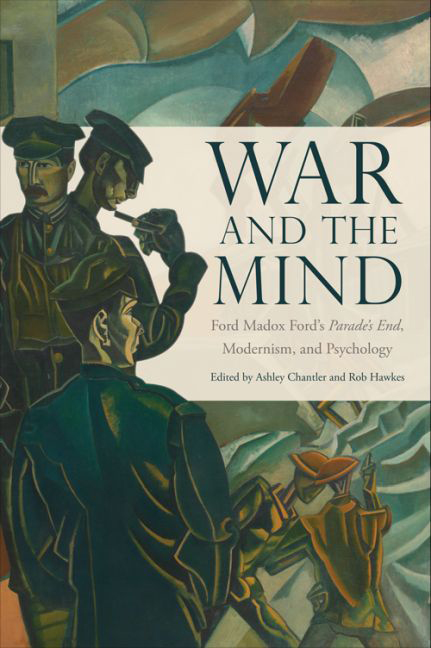Book contents
- Frontmatter
- Contents
- Acknowledgements
- Introduction
- 1 ‘Sex ferocity’ and ‘the sadic lusts of certain novelists’: Sexuality, Sadomasochism, and Suppression in Parade's End
- 2 Freud Madox Ford: Impressionism, Psychoanalytic Trauma Theory, and Ford's Wartime Writing
- 3 Empathy, Trauma, and the Space of War in Parade's End
- 4 Fellow Feeling in Ford's Last Post: Modernist Empathy and the Eighteenth-Century Man
- 5 The Self-Analysis of Christopher Tietjens
- 6 Composing the War and the Mind; Composing Parade's End
- 7 The Work of Sleep: Insomnia and Discipline in Ford and Sassoon
- 8 Representing Shell Shock: A Return to Ford and Rebecca West
- 9 ‘I hate soldiering’: Ford, May Sinclair, and War Heroism
- 10 Peace of Mind in Parade's End
- Notes on Contributors
- Bibliography
- Index
3 - Empathy, Trauma, and the Space of War in Parade's End
Published online by Cambridge University Press: 15 September 2017
- Frontmatter
- Contents
- Acknowledgements
- Introduction
- 1 ‘Sex ferocity’ and ‘the sadic lusts of certain novelists’: Sexuality, Sadomasochism, and Suppression in Parade's End
- 2 Freud Madox Ford: Impressionism, Psychoanalytic Trauma Theory, and Ford's Wartime Writing
- 3 Empathy, Trauma, and the Space of War in Parade's End
- 4 Fellow Feeling in Ford's Last Post: Modernist Empathy and the Eighteenth-Century Man
- 5 The Self-Analysis of Christopher Tietjens
- 6 Composing the War and the Mind; Composing Parade's End
- 7 The Work of Sleep: Insomnia and Discipline in Ford and Sassoon
- 8 Representing Shell Shock: A Return to Ford and Rebecca West
- 9 ‘I hate soldiering’: Ford, May Sinclair, and War Heroism
- 10 Peace of Mind in Parade's End
- Notes on Contributors
- Bibliography
- Index
Summary
In ‘Arms and the Mind’, written while in Ypres in 1916, Ford claims that he ‘can write nothing – why I cannot even think anything that to myself seems worth thinking’. This problem with finding an appropriate literary form – ‘we have no method of approach to any of these problems’, Ford moans in a posthumously published essay that was found in Ezra Pound's papers – becomes an issue of perspective or, rather, the lack of a proper perspective. ‘One is always too close or too remote’, Ford writes, and the challenge of the writer is to somehow find a form that reveals both the details and the broader picture of the war. Yet it also appears that this dilemma is something that should not be resolved, since it is a sensation central to the habitual state of the soldier in the trenches, whose perspective is circumscribed by the limits of a rifle sight. Ford describes:
Dimly, but very tyrannically, there lurk in your mind the precepts of the musketry instructors at Splott or at Veryd ranges. The precepts that the sights must be upright, the tip of the foresight in line with the shoulders of the ˉVˉ of the backsight are always there, even when the ˉVˉ of the backsight has assumed its air of being a loophole between yourself and the sun and wind and when the blade of the foresight is like a bar across that loophole. And the dark, smallish, potlike object upon whose ‘six o'clock’ you must align both bar and loophole has none of the aspects of a man's head. It is just a pot.
The limits on one's ability to see other perspectives are what enable survival in war, Ford argues, even as they are also what disable narrative.
- Type
- Chapter
- Information
- War and the MindFord Madox Ford's Parade's End, Modernism, and Psychology, pp. 50 - 62Publisher: Edinburgh University PressPrint publication year: 2015

